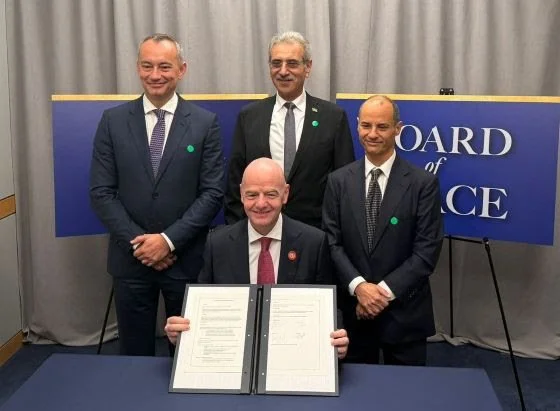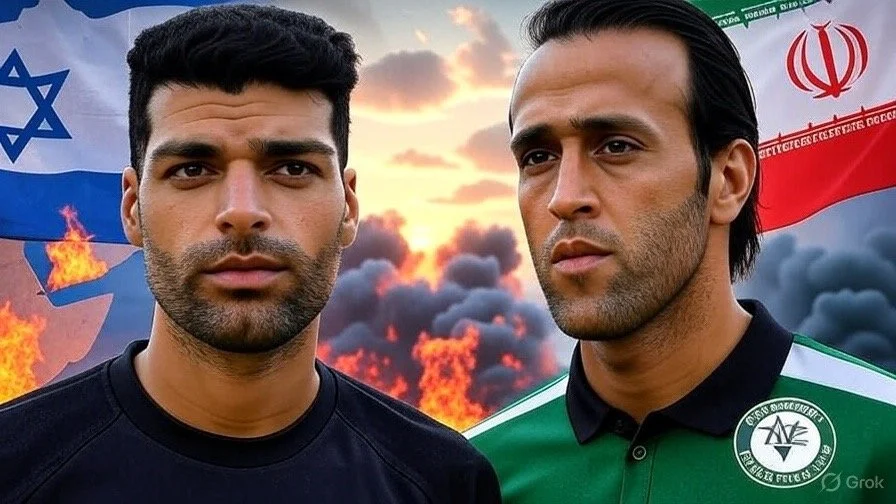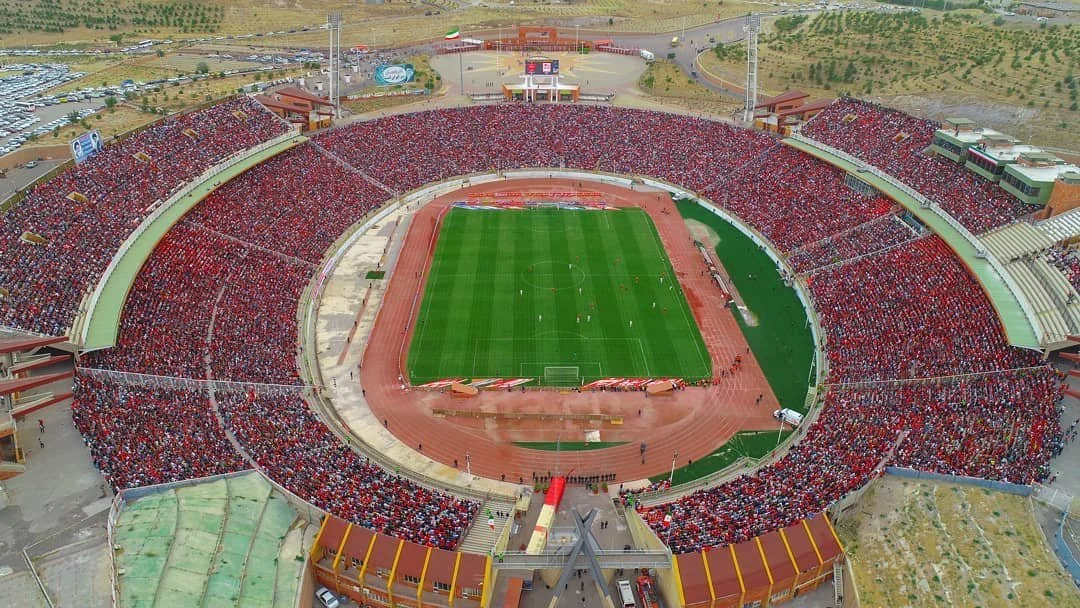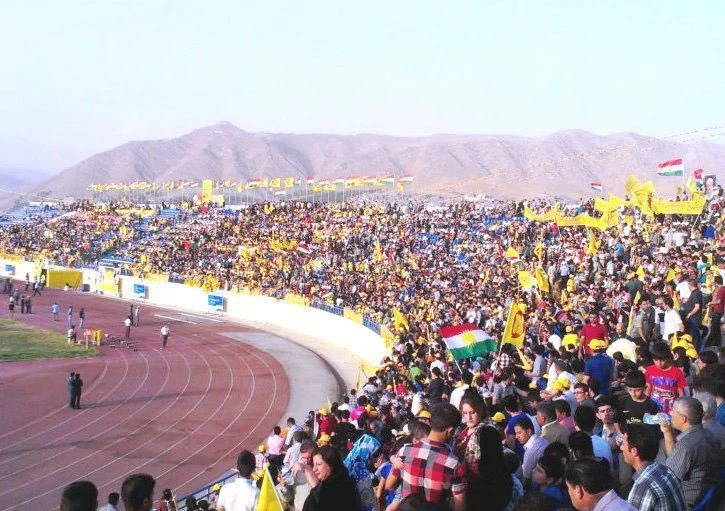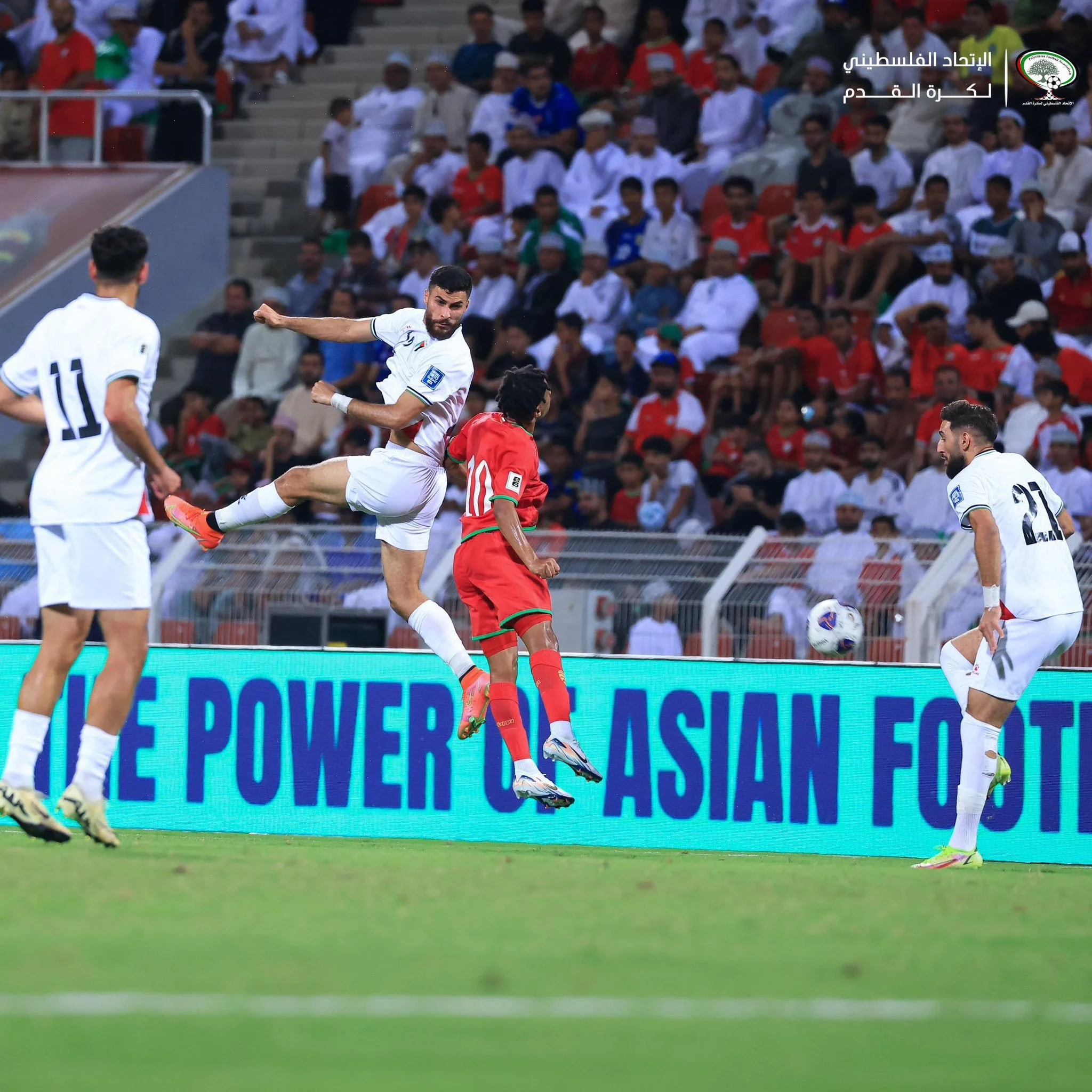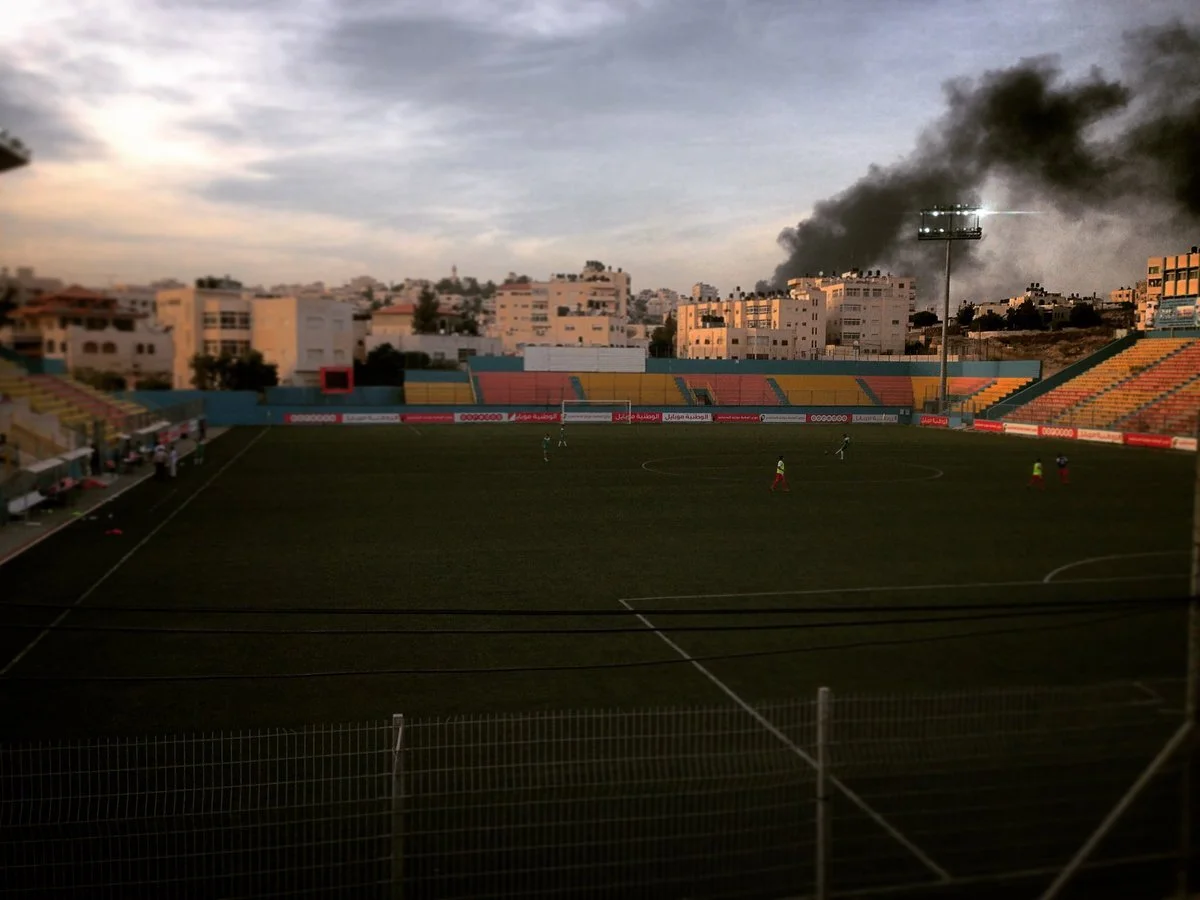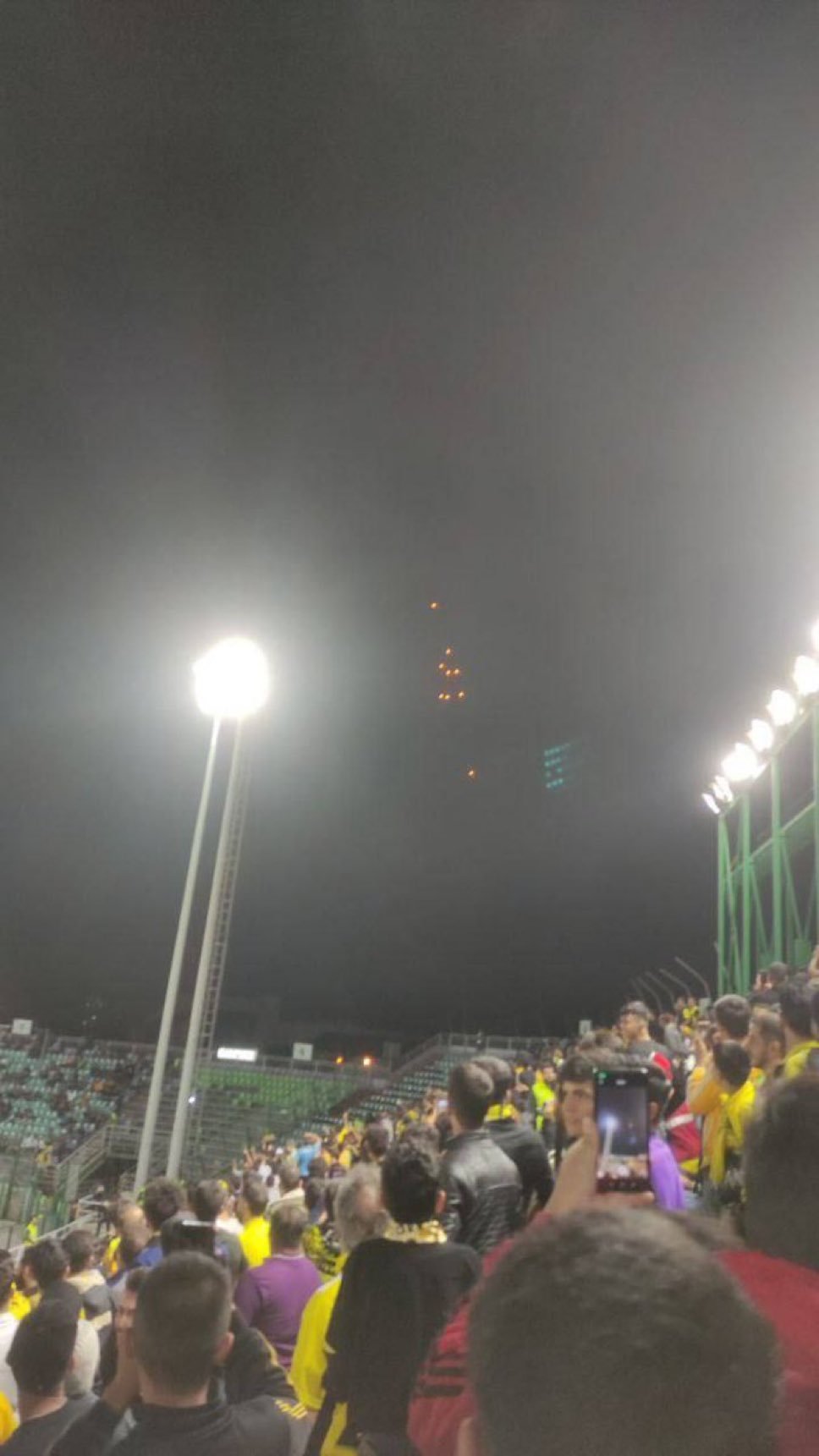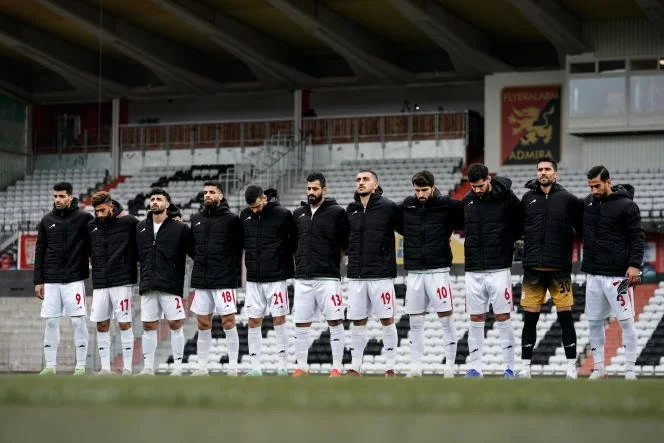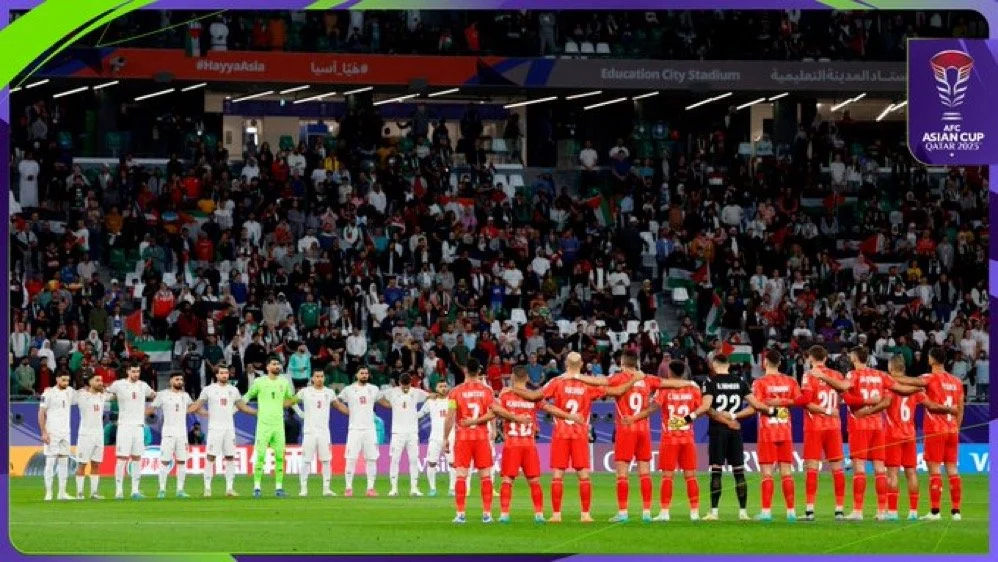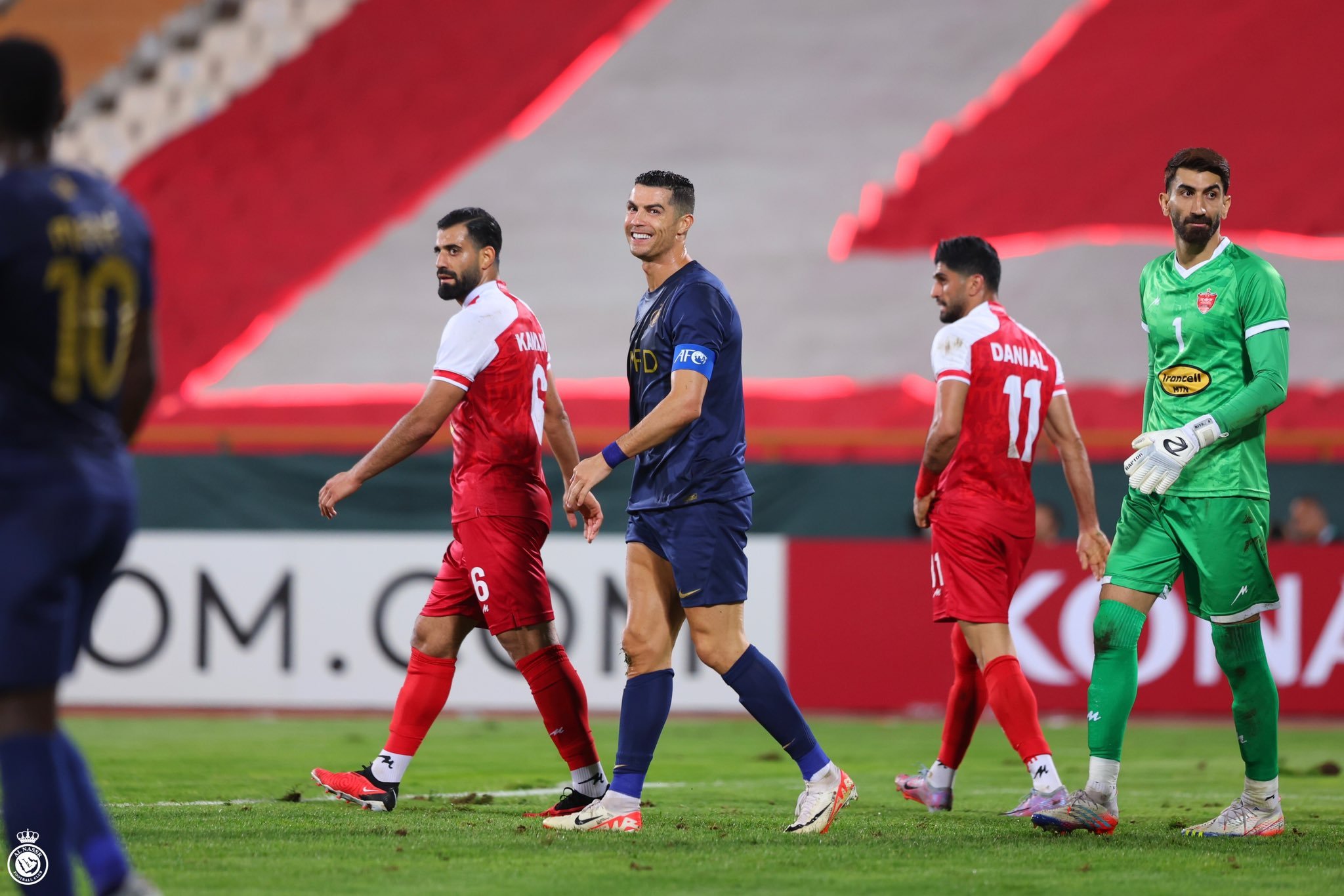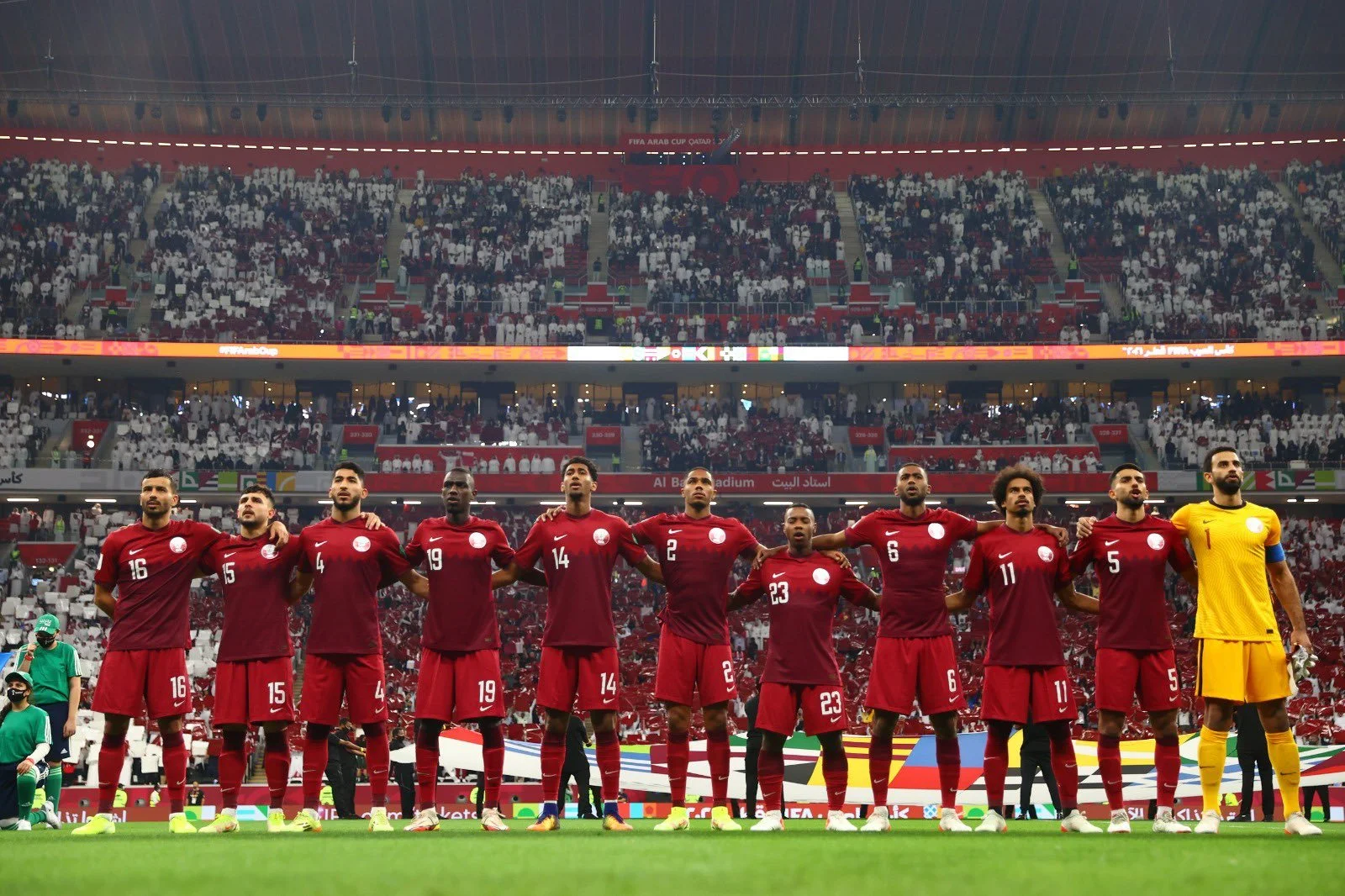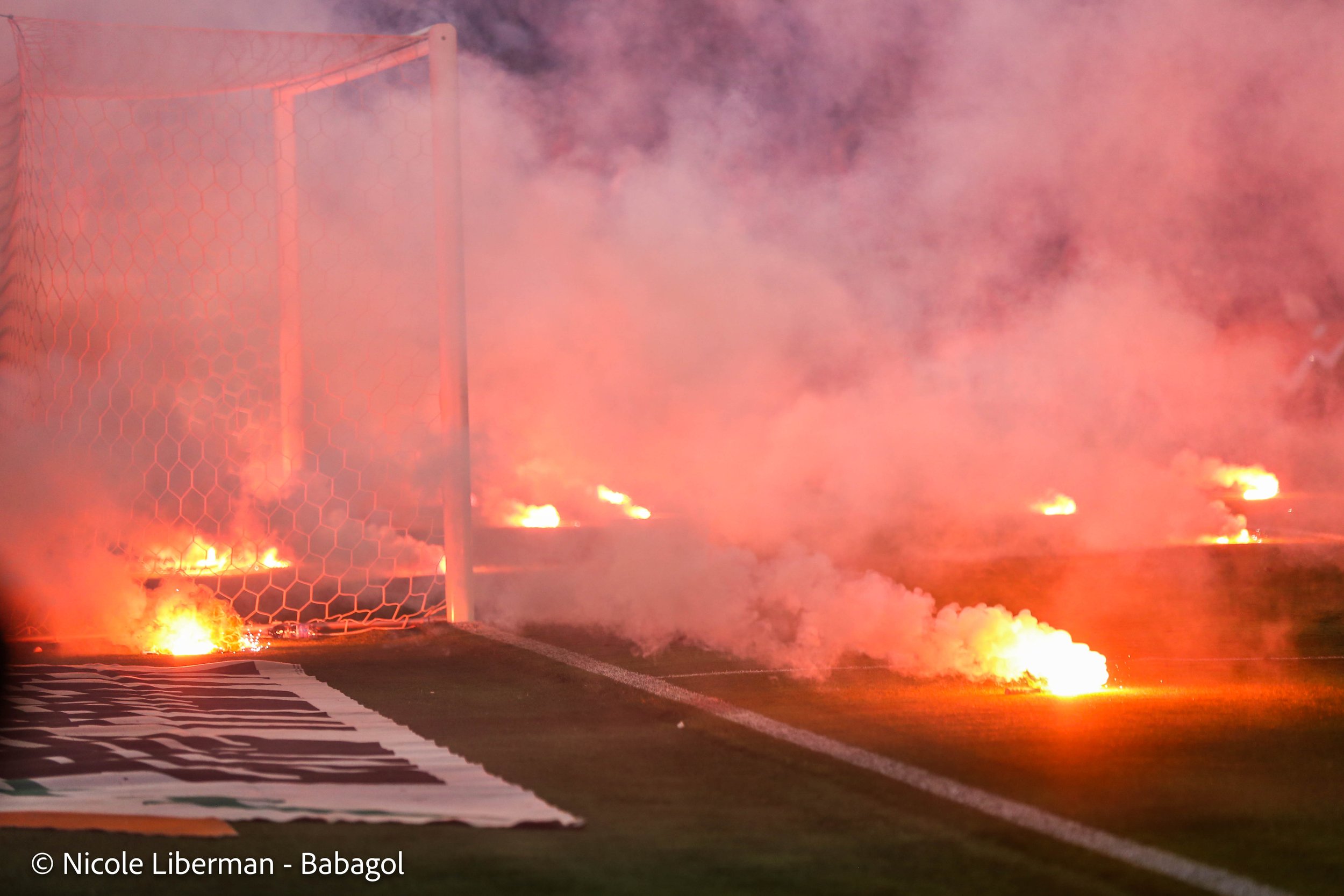"We are Iran, not the Islamic Republic."
These words were spoken by none other than the Iranian football legend Ali Karimi, who played for Bayern Munich and Schalke in Germany and appeared 127 times for the Iranian national team.
On Sunday, Karimi tweeted this sentence to his 16 million followers on social media, accompanying it with a photo of two hands, one painted with the colors of the Israeli flag and the other with the colors of the pre-Islamic Persian flag, symbolizing Iran's shift from its pre-Islamic roots.
The recent missile strikes and tensions between Iran and Israel have left the world on edge. While geopolitical tensions escalate towards potential conflict in the Middle East, significant events unfolded in Iranian football over the past weekend, reflecting the internal tensions between Israel, Iran's "greatest enemy," and its own people.
Iranian female fans in Asian Cup 2019. Outside Iran there are no problems for them to attend games (Photo courtesy: The Asian Football Confederation)
Iranian female fans pushing through
In a rare occurrence in Tabriz, female fans attended a local league match between Tractor Sazi, one of the most popular teams in Iran, and Zob Ahan for the first time since 1979. While the limited number of women attending league and Asian matches in Tehran and Isfahan had been sporadic in the past, it had never occurred in Tabriz, especially not at a Tractor Sazi match, which attracts nearly seventy thousand fans per game.
The issue of women entering stadiums in Iran has gained momentum in the past decade, with protests from female football fans emerging alongside underground movements of women disguising themselves as men to attend matches. The story of a woman who was arrested a few years ago for attending a match after being caught dressed as a male and later died from injuries sustained as she set herself on fire outside the court in Tehran sparked outrage and contributed to broader protests against the Iranian regime. Recently, limited initiatives have allowed families to attend matches, where a restricted number of female fans can enter stadiums. However, what happened in Tabriz over the weekend marks a significant development.
"It's not a coincidence that during such heightened security tensions with the real threat of war between Iran and Israel, authorities suddenly allow female fans to enter the stadium in Tabriz," a football journalist from one of Iran's major sports newspapers told BabaGol. "Every time the regime wants to divert public attention from its menacing actions, they try to use sports and football to distract people. Allowing female fans to attend is welcomed, and we're all waiting for it, but when it happens during such an attack, you understand it's just a distraction," he concluded.
Hossein Hosseini pay the price
This wasn't the only incident in Iranian football over the past weekend hinting at underlying tensions. After a match between Aluminum Arak and Esteghlal Tehran, a female fan, without a hijab, invaded the pitch and hugged Esteghlal's goalkeeper, Hossein Hosseini, who embraced her back, shielding her from security personnel. In response, Hosseini was later attacked by security forces. A video circulated on social media showed security personnel attempting to prevent her from reaching the pitch while Esteghlal fans present at the scene shouted "shame, shame." Hosseini received a 300,000,000 Tomans (around €6,500) fine from the Iranian Football Association, and the female fan reportedly faces legal consequences. The issue of women's entry into stadiums will now be reconsidered altogether.
One cannot separate Iranian football and sports from the hearts of the Iranian people, many of whom suffer under the Iranian regime more than any other segment of society. Dissent and resistance manifest in the silence of the Iranian national team players during the singing of the national anthem in recent World Cup matches, in the solidarity of footballers and athletes like Sardar Azmoun and Alireza Jahanbakhsh with the hijab protests, and in the outspokenness of Ali Karimi, who in recent years has become a vocal opponent of the Islamic regime and the revolution's guards, leading to his exile and ostracization. These expressions reflect the sentiments of millions of Iranians both within Iran and in the diaspora who do not identify with the actions of the Islamic Republic regime. Whether or not Karimi and millions of Iranians indeed harbor affection for Israel and significant Zionistic sentiments, if the current Iranian regime is a part of something, many millions among the Iranian people will stand against it.
Photo courtesy: The Asian Football Confederation
The article was first published by the writer at Israel Hayom.


